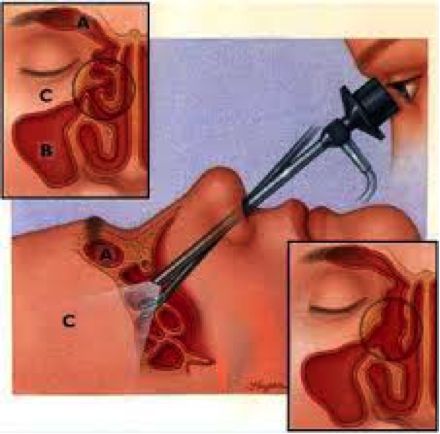Chronic sinusitis is a condition that affects millions across the globe, and residents are no exception.
If you’ve been dealing with constant nasal congestion, headaches, and facial pressure, and if medications haven’t been effective, FESS Surgery may be the right choice for you.
In this article, we will provide an in-depth overview of Functional Endoscopic Sinus Surgery (FESS), its benefits, candidacy, recovery process, and when exactly it becomes the best treatment option for chronic sinusitis.
Understanding Chronic Sinusitis
Chronic sinusitis, also known as chronic rhinosinusitis, is a prolonged inflammation of the sinuses that lasts more than 12 weeks despite medical treatment.
It may be triggered by infections, allergies, nasal polyps, or structural issues like a deviated nasal septum.
The growing urban population and pollution levels have led to a rise in sinus-related disorders, with many patients seeking ENT consultations for persistent symptoms.
What is FESS Surgery?
Functional Endoscopic Sinus Surgery (FESS) is a minimally invasive surgical procedure used to treat chronic sinusitis.
It involves the use of a small endoscope inserted through the nostrils to visualize and clear blocked sinus pathways.
Unlike traditional sinus surgery, FESS preserves normal structures, reduces recovery time, and enhances postoperative comfort.
Our ENT specialists are increasingly recommending FESS surgery as a highly effective treatment method when conservative measures fail to provide relief.
Symptoms That May Require FESS Surgery
If you are experiencing the following persistent symptoms, you may be a candidate for FESS surgery:
- Nasal congestion and obstruction
- Facial pain or pressure
- Loss of smell or taste
- Thick nasal discharge
- Headaches centered around the eyes and forehead
- Difficulty breathing through the nose
- Recurrent sinus infections despite antibiotics
These symptoms, especially when present for 12 weeks or longer, may indicate chronic sinusitis that could benefit from surgical intervention.
Read more: FESS vs Balloon Sinuplasty
When is FESS the Right Choice for Chronic Sinusitis?
FESS Surgery is typically considered when:
- Medications fail: If antibiotics, nasal sprays, and antihistamines have been tried with no lasting relief.
- Imaging shows sinus blockage: A CT scan reveals obstructed sinus drainage pathways or anatomical deformities.
- Polyp formation: Nasal polyps are obstructing the sinuses.
- Recurring infections: Frequent bouts of sinus infections that impact the quality of life.
In ENT clinics utilize advanced diagnostic tools, such as nasal endoscopy and imaging, to accurately evaluate the need for FESS surgery.
Benefits of Choosing FESS Surgery
Choosing to undergo FESS surgery offers several advantages, particularly when performed by experienced ENT surgeons in well-equipped facilities:
1. Minimally Invasive Approach
The procedure uses an endoscope, which allows precise access to sinus cavities without external incisions. This significantly reduces trauma to surrounding tissues.
2. Quicker Recovery Time
Patients typically return to normal activities within a week, making it ideal for busy professionals.
3. Enhanced Sinus Drainage
FESS restores proper drainage and ventilation of the sinuses, reducing infection risk.
4. Long-Term Relief
Most patients report significant symptom relief and improved quality of life after the procedure.
5. Day-Care Procedure
In many cases, FESS surgery is done as a day-care procedure, meaning patients can go home the same day.
Choosing the Right ENT Specialist For FESS
When considering this surgery, it’s crucial to consult a skilled and experienced ENT surgeon. Look for clinics that offer:
- Advanced endoscopic equipment
- High-resolution CT scan facilities
- Nasal endoscopy services
- Patient-centric care plans
- Transparent pricing and post-surgical support
Top ENT clinics, such as Gouda ENT, provide customized treatment plans that combine both surgical and medical management for chronic sinusitis.
Pre-Surgery Evaluation and Preparation
Before undergoing FESS surgery, a thorough evaluation is essential. This usually includes:
- Detailed medical history and physical examination
- Nasal endoscopy to examine sinus openings
- CT scan to map sinus anatomy
- Allergy testing if relevant
- Medication history review
Patients are advised to stop blood-thinning medications and fast before the procedure, depending on the ENT specialist’s instructions.
What to Expect During and After FESS Surgery
During the Surgery:
- The procedure is done under local or general anesthesia
- It typically lasts between 1 to 2
- Surgeons use high-definition cameras for the precision removal of
Post-Surgery Care:
- Mild bleeding and nasal congestion are common for a few
- Nasal irrigation with a saline solution is recommended to aid
- Avoid strenuous activities and dusty environments for at least a
- Follow-up appointments are crucial for cleaning and
Patients can expect personalized postoperative care from leading ENT clinics, ensuring optimal recovery and long-term relief.
Risks and Complications of FESS Surgery
Though FESS surgery is generally safe, it’s important to be aware of potential complications, including:
- Bleeding
- Infection
- Scar tissue formation
- Changes in sense of smell
- Eye-related issues (rare)
We are the leading ENT surgeons take all necessary precautions to minimize these risks through precise techniques and postoperative care.
Alternative Treatments for Chronic Sinusitis
Before choosing surgery, doctors may recommend the following treatments:
- Nasal corticosteroids to reduce inflammation
- Saline nasal irrigation for mucus clearance
- Oral steroids or antibiotics during infection flare-ups
- Allergy management, including antihistamines or immunotherapy
- Balloon sinuplasty, a less invasive alternative for some cases
However, when these treatments fail, FESS surgery becomes the most effective long-term solution for residents suffering from chronic sinusitis.
Conclusion: Is FESS Surgery Right for You?
If you are suffering from unrelenting sinus symptoms, frequent infections, and poor response to medications, FESS surgery may offer the relief you deserve.
With modern surgical techniques, expert ENT care, and comprehensive post-op support, this procedure is transforming lives across the city.
Don’t let chronic sinusitis affect your quality of life—consult a trusted ENT specialist today and explore if FESS surgery is your next best step toward lasting relief.


